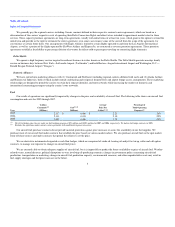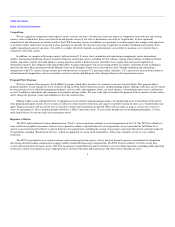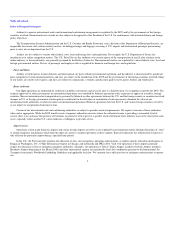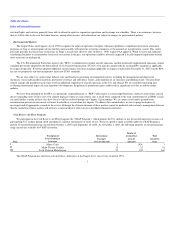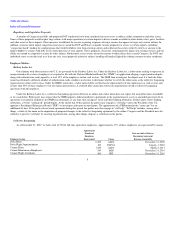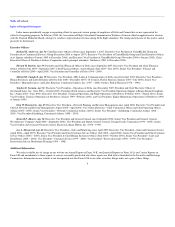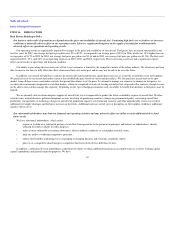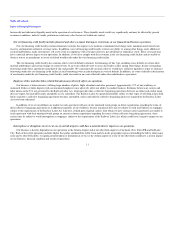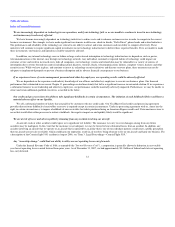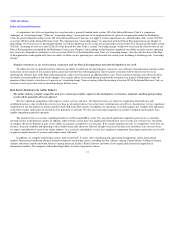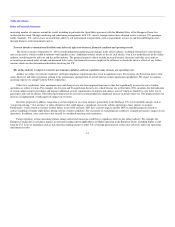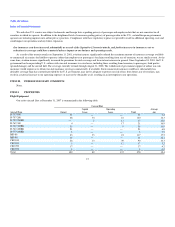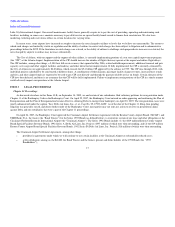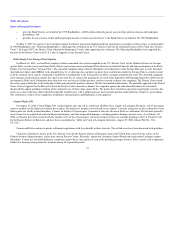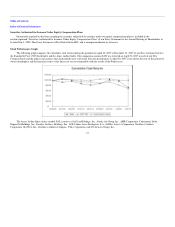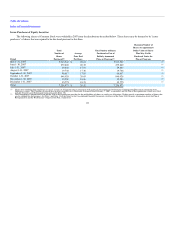Delta Airlines 2007 Annual Report Download - page 19
Download and view the complete annual report
Please find page 19 of the 2007 Delta Airlines annual report below. You can navigate through the pages in the report by either clicking on the pages listed below, or by using the keyword search tool below to find specific information within the annual report.
Table of Contents
Index to Financial Statements
increasing number of countries around the world, including in particular the Open Skies agreement with the Member States of the European Union, has
accelerated this trend. Through marketing and codesharing arrangements with U.S. carriers, foreign carriers have obtained access to interior U.S. passenger
traffic. Similarly, U.S. carriers have increased their ability to sell international transportation, such as transatlantic services to and beyond European cities,
through alliances with international carriers.
Terrorist attacks or international hostilities may adversely affect our business, financial condition and operating results.
The terrorist attacks of September 11, 2001 caused fundamental and permanent changes in the airline industry, including substantial revenue declines
and cost increases, which resulted in industry-wide liquidity issues. Additional terrorist attacks or fear of such attacks, even if not made directly on the airline
industry, would negatively affect us and the airline industry. The potential negative effects include increased security, insurance and other costs and lost
revenue from increased ticket refunds and decreased ticket sales. Our financial resources might not be sufficient to absorb the adverse effects of any further
terrorist attacks or other international hostilities involving the U.S.
The airline industry is subject to extensive government regulation, and new regulations may increase our operating costs.
Airlines are subject to extensive regulatory and legal compliance requirements that result in significant costs. For instance, the FAA from time to time
issues directives and other regulations relating to the maintenance and operation of aircraft that necessitate significant expenditures. We expect to continue
incurring expenses to comply with the FAA's regulations.
Other laws, regulations, taxes and airport rates and charges have also been imposed from time to time that significantly increase the cost of airline
operations or reduce revenues. For example, the Aviation and Transportation Security Act, which became law in November 2001, mandates the federalization
of certain airport security procedures and imposes additional security requirements on airports and airlines, most of which are funded by a per ticket tax on
passengers and a tax on airlines. The federal government has on several occasions proposed a significant increase in the per ticket tax. The proposed ticket tax
increase, if implemented, could negatively impact our revenues.
Recently, proposals to address congestion at certain airports or in certain airspace, particularly in the Northeast U.S., have included concepts such as
"congestion pricing," "slot auctions" or other alternatives that could impose a significant cost on the airlines operating in those airports or airspace.
Furthermore, events related to extreme weather delays in late 2006 and early 2007 have caused Congress and the DOT to consider proposals related to
airlines' handling of lengthy flight delays during extreme weather conditions. The enactment of such proposals could have a significant negative impact on our
operations. In addition, some states have also enacted or considered enacting such regulations.
Future regulatory action concerning climate change and aircraft emissions could have a significant effect on the airline industry. For example, the
European Commission is seeking to impose an emissions trading scheme applicable to all flights operating in the European Union, including flights to and
from the U.S. Laws or regulations such as this emissions trading scheme or other U.S. or foreign governmental actions may adversely affect our operations
and financial results.
14


